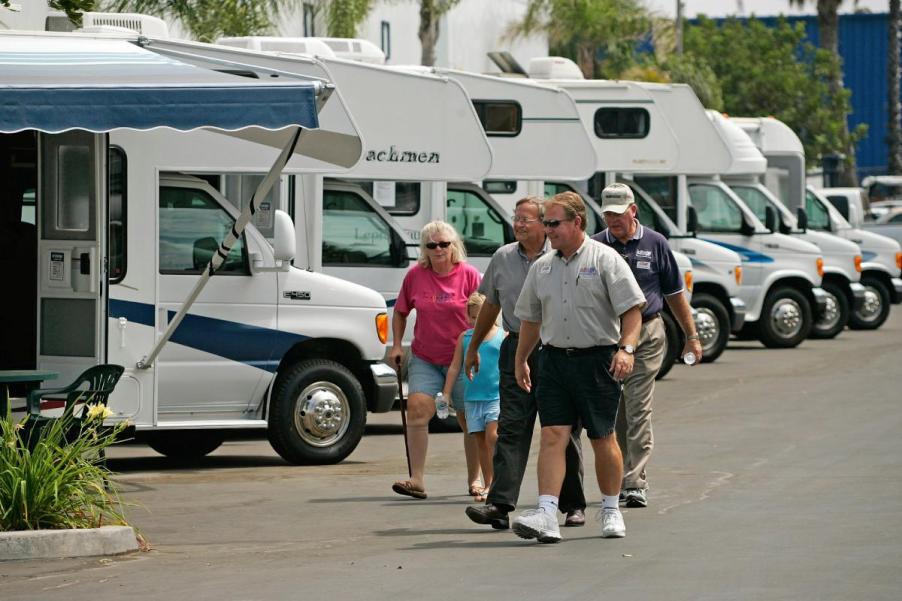
Is Buying an RV Just Like Buying a Car?
Purchasing a new car is a pretty straightforward transaction. Once you find a vehicle you like and negotiate the price, you secure financing and close the deal. While buying an RV is a similar process, it is not quite as clear cut and includes a lot of variables that must be considered before signing on the dotted line.
If you plan to purchase a new recreational vehicle, familiarize yourself with the similarities and differences so you can be prepared and know what to expect from your local dealership.
What are the similarities between buying an RV and a car?
The most significant similarity between buying an RV and a car is a dealership’s willingness to gain your business. In both cases, you will need to work with a salesperson who will tell you all the highlights and features of the vehicle, assuring you that they are offering the best deal in town. It is up to you to see past the hype, do your own research beforehand, and know the value of what you intend to purchase.
Another similarity is that a car and a recreational vehicle are both modes of transportation that must be registered in the state where you intend to tow or drive it. Fees are typically based on vehicle weight, costing significantly more for an RV.
Extended warranties and service contracts are offered in both instances and while it will add more money to your bottom line, it could come in handy in the event of a major repair.
RVers tend to purchase a contract more so than car owners since RVs have more components that could cause problems down the road. From slideouts to appliances to plumbing and electrical systems, unexpected repairs can get expensive quickly.
What are the differences when buying an RV?
Unless paying in cash, you will also need to secure financing for both a car and an RV, but the terms of the loan will be drastically different. While an automobile is typically financed for 48 to 72 months, an RV loan can extend as far as 20 years. While this keeps the monthly payment lower, you will end up paying a lot more in interest to the bank.
Securing financing for an RV can also be more difficult than a car since it is considered a luxury purchase. While a bank will often approve an auto loan to a borrower with a credit score of 600, most RV loans require a score of at least 700 with a clean credit profile free of bankruptcy or collection accounts.
Another difference is the walk-through process of an RV, which is much different than purchasing a vehicle. When a manufacturer sends a unit to a dealership for retail sale, they must ensure the rig is ready for occupancy.
Unfortunately, many dealers cut corners, leaving the responsibility of checking for issues with the new owner. While it may seem like a hassle, it is essential to take the time to do a thorough walk-through of an RV before taking ownership. It is much easier to get something repaired before leaving the dealership than having to wait several months to get a service appointment for an easy fix.
Many of the same principles can be applied to both purchases
In both instances, purchasing a used vehicle will reduce the sales price, lower your monthly payment, and decrease the extent of depreciation compared to a new model.
Dealerships have quite a bit of wiggle room, especially with used vehicles, so it is essential to negotiate before agreeing on a final price. Consult NADA RV to determine a fair market value.
According to RVingPlanet, “If you plan to purchase a new RV, they often have MSRP retail prices that can be reduced 20 – 30%.” Car dealers can still offer a discount, but it will not be as substantial as an RV, although rebate offers are often available.
Dealerships will determine how low they are willing to go based on how long a unit has been sitting on the lot, the initial cost of the rig, the time of year, and how eager they are to move their product.


